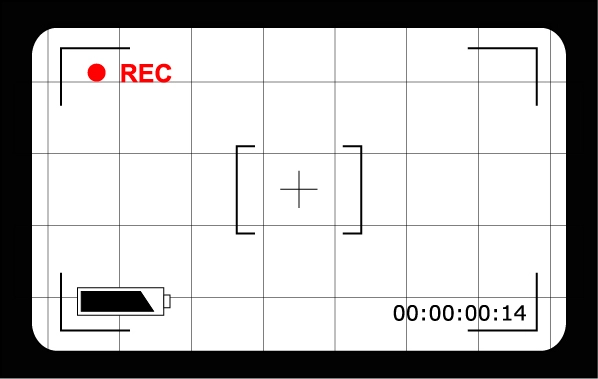
These ‘G’ codes may be mysterious, but we’ll help you answer your top questions.
You may think everything is set perfectly with an all-inclusive G code for billing a pulmonary rehabilitation (PR) program, but you’ll encounter many pitfalls that can delay or even deny you the reimbursement you ethically deserve. Avoid these pitfalls to remain always on top of your PR services.
Pitfall #1: You Think You Know Everything About the G Codes
You have several G codes out there to capture pulmonary rehab services. You must know when to use the G codes appropriately. They can be outlined in three groups:
Comprehensive Outpatient Rehabilitation Facilities (CORFs): If the patient is availing PR services at a dedicated CORF, the facility will report the program with G0128 (Direct [face-to-face with patient] skilled nursing services of a registered nurse provided in a comprehensive outpatient rehabilitation facility, each 10 minutes beyond the first 5 minutes). The coverage includes the procedures performed by a registered nurse. Educational services like teaching the patient about proper techniques regarding bed sores, in and out urethral catheterization, and colostomy are also included under this Medicare coverage. The physician is not required to be physically present in the facility during PR.
Beware: This code is only reported by the facility, and not to be used for professional (physician) billing. It also covers daily nursing services as part of the facility’s overhead costs, not specific to pulmonary rehab.
COPD Patients: For pulmonary rehabilitation service exclusively for patients with moderate to very severe COPD, you will report a special bundled code G0424 (Pulmonary rehabilitation, including exercise [includes monitoring], one hour, per session, up to two sessions per day) linked to 491.20 (Obstructive chronic bronchitis without exacerbation). Remember to verify that the patient’s COPD has been documented as GOLD classification II, III or IV according to the referral of the treating physician.
HCPCS code G0424 applies to all PR services provided in the physician’s office and in outpatient hospital settings. The provider (hospital or practitioner) can report up to two one-hour sessions each day, but in order to report one session of pulmonary rehab, the treatment must last at least 31 minutes.
CMS does not specify any specific limit on the duration of the PR program, but the code should cover only up to 36 visits.
Caution: This is a comprehensive service code and allied services like 6 min. walk test are included in the service.
Non-COPD patients: For all other patients with other pulmonary-related diseases, who require PR services that help them cope with chronic lung disease, you have the following codes:
These are time-based services where you can bill a single 15-minute unit for 8-22 minutes of CPT® G0237 and G0238, bill two units for 23-37 minutes, etc. Code G0239 is billable once per day per patient. You would be able to bill for any additional testing such as the six-minute walk when using these G codes. Typically, a therapist will provide and report these services.
Pitfall #2: You Don’t Support the PR Codes With Covered Diagnoses
Make sure that you are billing for the PR services with appropriate and covered diagnoses justifying the medial necessity. According to an Outpatient Pulmonary Rehabilitation review carried out by CGS Medicare, more than 50 percent of denials in PR claims were because the diagnosis submitted did not warrant pulmonary rehab. Check with your local coverage entity for allowed diagnosis codes.
Codes (other than 491.20) that may support your claim are:
To be eligible for PR reimbursement, the patient must have a diagnosis of a chronic, stable respiratory disorder with disabling symptoms that impair the patient’s function but do not obstruct convalescence. You will need PFT results to demonstrate forced vital capacity (FVC), forced expiratory volume (FEV1), and/or a carbon monoxide diffusing capacity (DLCO) of <65% predicted on PFT within 1 year of PR.
Pitfall #3: You Lose Out on E/M Codes for Follow-Up Visits
Although you cannot report E/M codes for therapy sessions, you can report follow-up non-PR visits to your pulmonologist with appropriate E/M codes such as 99214 (Office or other outpatient visit for the evaluation and management of an established patient, which requires at least 2 of these 3 key components: a detailed history; a detailed examination; medical decision making of moderate complexity...). These visits are important to evaluate the patient’s underlying condition, any exacerbations, and response to medication therapy.
Other than E/M codes, you may also be losing out on billing allied and equipment used for therapy. For instance, you can claim any pulmonary function test (94010-94621) that the pulmonologist’s pulmonary function lab performs for all G codes except G0424. Additionally, you may also submit any equipment costs incurred in the office setting such as A4614 (Peak expiratory flow rate meter, hand held), A4627 (Spacer, bag or reservoir, with or without mask, for use with metered dose inhaler), or A7003 (Administration set, with small volume nonfiltered pneumatic nebulizer, disposable).
Pitfall #4: You Take It Easy on Documentation
You will encounter many documentation obstacles where your claim may fall and rebound. Follow these golden rules to foolproof your claims:
Your pulmonary rehab program documentation should also include the following:
